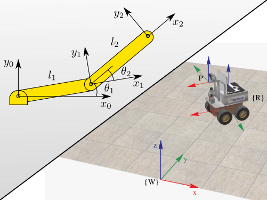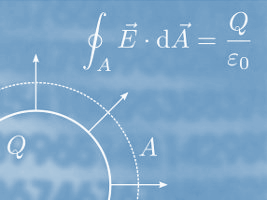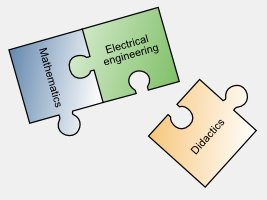LEMMA*: Teaching Innovations for Mathematics Education in Electrical Engineering

 |
 |
 |
|
* LEMMA = Lehrinnovationen zur Mathematikausbildung in der Elektrotechnik (original German title). SummaryGenerally, engineering courses in the introductory phase of a study program are taken by students with different qualifications. Students' mathematical skills are often insufficient to work on particular specialist subjects. Relevant competencies often exceed school mathematics and can be established only later in mathematics courses. Fundamentals of Electrical Engineering courses dealing with the quantitative description of electromagnetic fields are a representative example. For this purpose, students have to be able to handle multiple integrals in connection with various coordinate systems.International students in electrical engineering master's programs face a similar challenge. The course Robotics, e. g., requires in-depth mathematical knowledge particularly in linear algebra. Given the heterogeneity of the students, an adequate state of knowledge can no longer be assumed. To meet the challenges of the course Fundamentals of Electrical Engineering offered by GET Lab, a blended learning scenario for transferring mathematical competencies within engineering courses was developed within a previous project (Situated Acquisition of Mathematical Knowledge). A web-based learning platform in the form of a wiki is the central element of this approach. It contains excursions (articles) on mathematical key subjects that were identified in a study within the course to be particularly problematic for the students. In the course of the evaluation of the scenario its efficiency and acceptance were verified/demonstrated. Despite identical requirements, by applying the developed interventions, the failure rate in the final exam could be reduced from 38.0 % in the previous year (winter semester of 2011/12) to 24.2 % (winter semester of 2012/13). Generation of Video Teaching UnitsWithin this project the course Fundamentals of Electrical Engineering is enhanced by audiovisual components, i. e. video teaching units. The course requires a great amount of (mathematical) modeling competency that can be specifically trained using the advantages of audiovisual presentation. To be able to describe electromagnetic fields and/or the related integral theorems, generally the construction of suitable "geometric objects", e. g. enveloping surfaces or curves is initially required. In this connection particularly the symmetrical properties of the respective setup (a real conductor is typically cylindrical) have to be considered. Three-dimensional presentations and animations which can highlight individual parts (e. g. enveloping surfaces) demonstrate this process clearly.The video teaching units are to be made available specifically for mobile/portable devices – thus taking into account the demand for place- and time-independent learning. Especially findings from the Massive Open Online Courses (MOOCs) which have recently become popular will be used as the basis for generating these videos. Students are instructed and motivated to independently explore technical-mathematical relationships by the systematic integration of the online-platform into the teaching videos, e. g. already developed applets. The interventions will be subjected to a systematic evaluation. Transferring the Blended Learning Scenario to the Course RoboticsThe Blended Learning approach is to be transferred to the master's program electrical engineering. Mathematical contents in the form of the web-based learning platform shall be processed using the course Robotics, also offered by GET Lab, as an example. To describe the kinematic and dynamic of manipulator arms and mobile robots students require in-depth mathematical knowledge in linear algebra and quaternions. The methods are used to describe the three-dimensional Euclidian space and other spaces in translations and particularly rotations. A systematic evaluation shall be conducted in this case as well.AcknowledgementsBased on the recommendation of the Commission on Teaching, Studies and Quality Management of the University of Paderborn the Award for Innovation and Quality in Teaching 2013 was granted for the implementation of the project. The project is affiliated with the Competence Center University Didactics in Mathematics (KHDM).ContactDo you have any questions or comments? Please contact: |
